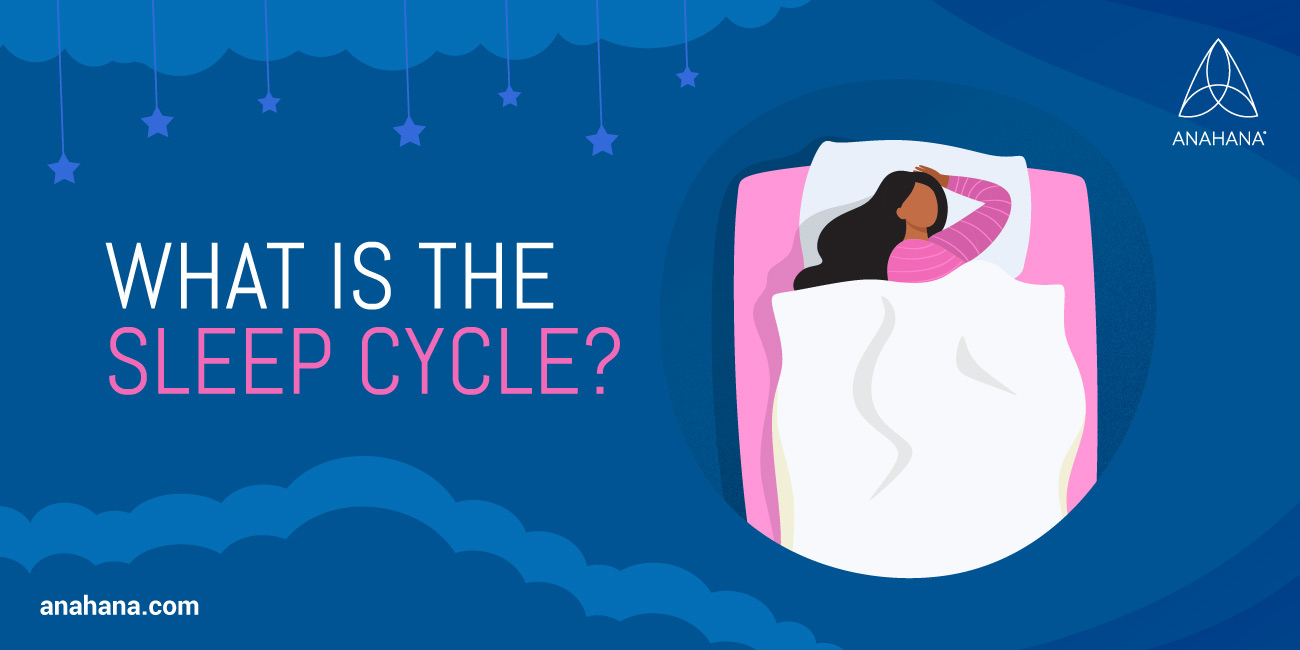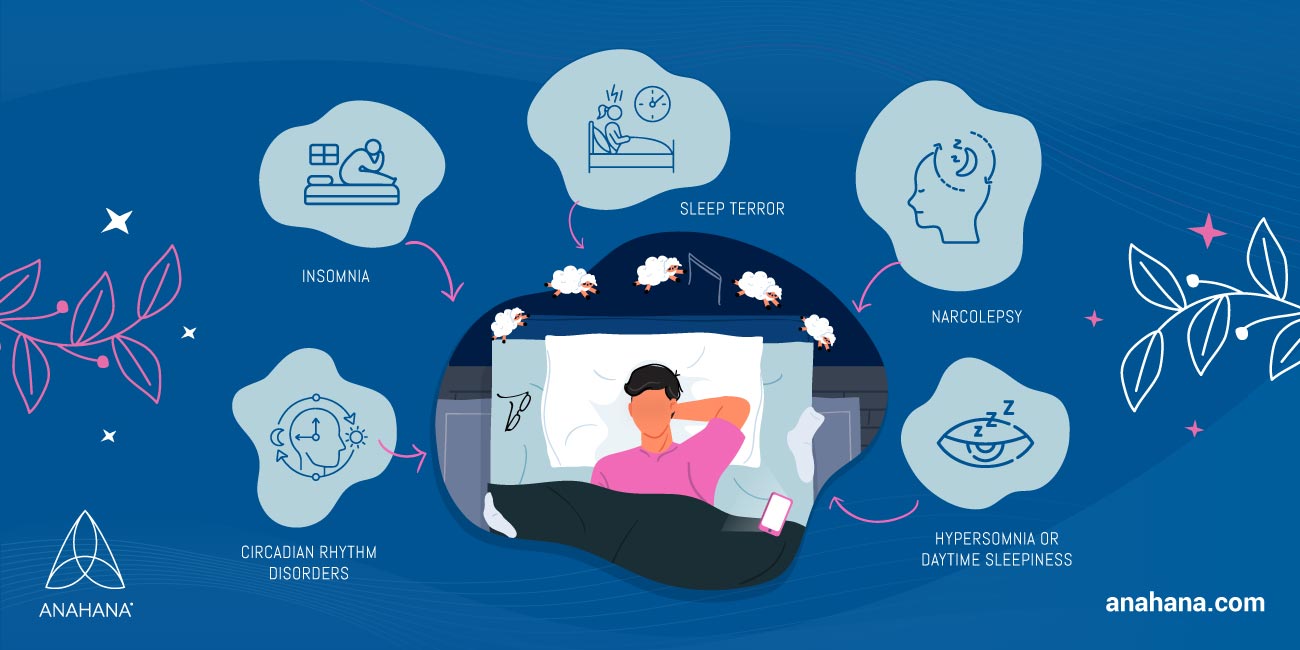
Table of Contents
Delve into the science, functions, and stages of sleep, explore sleep disorders and their impact, and learn about the essential role of sleep in overall health and well-being. Uncover the latest research, historical perspectives, cultural practices, and expert insights to deepen the understanding of this fundamental aspect of human existence.
Key Takeaways
- Importance: Sleep is essential for physical and mental health, aiding in recovery, memory, and emotional regulation.
- Stages: The sleep cycle includes stages of non-REM and REM sleep, each playing a critical role in overall restfulness.
- Sleep Hygiene: Maintaining good sleep hygiene, such as a consistent sleep schedule and a comfortable environment, improves sleep quality.
- Factors: Diet, exercise, stress, and exposure to light impact sleep quality.
- Disorders: Conditions like insomnia and sleep apnea disrupt sleep and require management.
- Improvement: Practices like relaxation techniques and limiting screen time before bed enhance sleep quality.
Sleep Explained
Sleep is a naturally occurring state of rest. It is characterized by reduced movement, decreased consciousness, altered (although not necessarily decreased) brain function, and reduced sensory perception.
Sleep is the body’s natural state of recovery, and it is during sleep that the body rejuvenates and repairs itself, memories are formed, and motor patterns are learned.
Many hormones and chemicals, including growth hormone, testosterone, and prolactin, are released during sleep, making quality sleep vital for growth and healing.
What Causes Sleep?
The exact causes of sleep are still being studied, but some are well-known. This article will break down some pieces of the sleep puzzle.
Circadian Rhythm
The body’s natural clock - found in the hypothalamus - controls the circadian rhythm and sleep cycles. When the eyes perceive different forms of light, they signal different hormones to release, including the sleep signaling hormone (melatonin).
The circadian rhythm is the body’s natural cycle of sleep and wakefulness (sleep-wake cycle) and generally follows a 24-hour cycle based on exposure to light and darkness.
Bright lights, especially morning sunlight and blue light, cause the brain to release hormones that keep the body awake and energized. Lower lights, like red and orange lights, cause a release of relaxation and sleep hormones, which peak in darkness.
Sleep Hormones
Chemicals and hormones are the major ingredients that lead someone to fall asleep. One of these chemicals, adenosine, accumulates over the day. Adenosine is a by-product of the body using energy, and when it builds up in the brain, it causes feelings of fatigue and drowsiness. This gradual onset of tiredness is called “sleep drive.”
The other important chemical for sleep is called melatonin. Melatonin is the sleep signaling hormone. It binds with receptors in the brain to increase feelings of sleepiness. It’s important to note that melatonin is not a sedative to help someone fall asleep but a hormone that sends the signal to feel sleepy.
Environmental Factors
Environmental factors play a large role in sleep promotion, too. Being in a cool, comfortable, quiet and dark environment is shown to promote sleep, but the exact reason for this isn’t yet known. Some scientists have posed that it’s part of human evolution, that this environment mimics a safe space to rest and recharge, signaling sleep.
Brain Activity
Brain activity changes during sleep, but changes in brain activity also promote sleeping. Disengaging the mind and calming down signals the body to sleep. Meditation and relaxation can be effective remedies for people with trouble falling asleep.
The Importance of Sleep
Mental and Physical Health
High-quality sleep is one of the most important factors in promoting or improving mental and physical health. Because sleep is when the body repairs itself, more sleep - especially deep and REM sleep - gives the body a better chance to heal, repair, or grow. It also prevents serious health problems by reducing mental and physiological stress on the body.
Getting enough sleep reduces high blood pressure and cardiovascular disease, improve immune response, and boosts the production of healthy chemicals in the brain. The mental health benefits of sleep are massive, too - scientists have found a direct relationship between levels of sleep at night and symptoms of anxiety, depression, and other mental health conditions.
The body cannot properly manage its processes without enough sleep because so many important chemicals and hormones are released in time with the sleep-wake cycle.
Performance and Productivity
Better sleep leads to more productivity and better performance throughout the day. During sleep, the body replenishes its adenosine triphosphate (ATP) stores. ATP is the fuel for all bodily functions, including muscular contractions and the energy needed for digestion.
Consistent sleep has been directly linked to better grades in university students, and a lack of sleep is related to poorer workplace performance and more workplace accidents. Sleep researchers in the United States looked at the sleep data of nearly 600,000 people and discovered a direct relationship between sleep patterns and workplace productivity.
Following this study, they recommended companies add policies and practices to promote sleep health in the workplace, concluding that investing in employees’ sleep would improve workplace productivity.
Growth and Learning
Sleep promotes growth and development in the brain and body. During sleep, the body releases growth hormone and other signals to build and repair itself. Healing and growth happen during a good night’s rest. This is why experts recommend up to 14 hours/day of sleep for infants and toddlers.
More sleep is needed to support fast growth in infants, toddlers, and school-age children. In adults, too, muscle growth and bone strengthening happen during sleep. After a hard workout that breaks down muscle fibers, it is during nighttime sleep that supercompensation happens, growing the muscles larger than they were.
During sleep, the brain codes recent memories and recently-processed information into short- and long-term memories. Information taken during the day is subconsciously categorized and added to the brain’s memory bank, with functional skills coded during REM sleep and declarative information filed away in the lighter sleep stages.
Emotional Wellness
The role of sleep in emotional wellness is still being studied, but researchers have found strong links between emotional health and good sleep habits. Getting enough sleep helps to stabilize mood, reduce emotional volatility, and enhance resilience to stress.
Sleep Deprivation
Studies on sleep deprivation have found many dire consequences of not sleeping enough. Anxiety, depression, reduced metabolism, muscular atrophy, stress, and severe immune system damage are only some of the many detriments of not sleeping enough. Suffice it to say - sleep is necessary for health! Healthy sleep habits promote overall health, and building a sleep debt over consecutive nights can compound the issues someone’s likely to face.
The Sleep Cycle
Circadian Rhythms
Circadian rhythms are natural internal cycles that take place over about 24 hours. The circadian rhythm’s main function is to match what goes on inside the body with the environment and world outside the body. The internal clock gathers information from the environment - like levels of light and sound - and from a person’s behavior, with meal timing and daily routines playing into its calculations.
Circadian rhythms influence when and how the body works, impacting digestion, metabolism, brain activity, and hormone release, including the sleep and wakefulness hormones. The circadian rhythm provides the building blocks for the sleep-wake cycle and its sleep stages.
Sleep Stages Explained
The sleep cycle is broken into four different sleep stages that run one after another, repeating stages 1-4 approximately every 90 minutes in a constant cycle until waking. Cycles are determined by their depth of sleep, electrical activity of brain waves, body temperature, eye movement, and dream activity.
Cycles are classed as either non-REM sleep or REM sleep, with stages one, two, and three being non-REM and stage four being the only REM stage of sleep. REM sleep, or rapid eye movement sleep, is named that because the eyes move randomly during this stage of sleep.
Starting with wakefulness, people pass from non-REM One through non-REM two and three, known as deep or slow wave sleep.
During this transition, body temperature drops, brain activity decreases, and heart rate reduces. After Non-REM Three, they will pass into REM Sleep. Stages One to Three of Non-REM Sleep is the most physically restorative.
REM Sleep, unlike the other sleep stages, has significant brain activity. Brain waves measured during REM Sleep are much faster and show more brain activity, likely related to dreams. During REM, the body enters a virtual paralysis, possibly meant to prevent people from acting out their dreams.
Sleepwalking, one of the parasomnia family of sleep disorders, is thought to occur when someone’s dreams occur outside of REM sleep and does not experience this paralysis.
At the end of the REM Sleep stage, the cycle repeats back to NREM One or Two and repeats.
Optimal Sleep Duration
There is no one-size-fits-all approach for the optimal sleep duration. Sleep research generally finds that a good night’s sleep includes four to six 90-minute sleep cycles, and people feel best when their daily routine includes a regular sleep schedule.
Still, sleep timing is an intricate science, and the perfect amount of sleep ranges from person to person and night to night. If someone has a significant sleep debt - they have missed sleep for consecutive nights - they need to sleep longer to feel refreshed.
Frequent sleep disturbances, like those caused by sleep apnea, can often lead to poor sleep, even if someone has a reasonable sleep schedule. The best way for someone to determine the ideal sleep duration is to follow the internal clock, go to bed when sleepy, and wake up consistently.
Getting a Good Night’s Sleep: The Basics
Getting a night of great sleep benefits many aspects of life, but many people don’t know where to start. These sleep tips will help build up healthy sleeping habits and improve sleep in the long term.
Bedtime Routine
A well-planned and consistent bedtime routine is one of the best ways to improve sleep quality. People with trouble sleeping can often make small tweaks, like limiting late blue light exposure and planning a consistent bedtime, and find their sleep quality massively increases. A typical night should have a consistent bedtime, and eating habits should be adjusted to avoid large meals before bed.
Healthy Sleep Environment
“Sleep environment” refers to where someone gets their nighttime sleep. The ideal sleep environment should be very dark. Sound and noise should be limited to white or ambient noise in the room rather than music or conversation. Keep the room cool, and use a blanket if it’s too cold. Some people report a weighted blanket can help with relaxation.
The ideal sleep environment for healthy sleep would have no screens - no TV, phone, computer, or even digital alarm clock. A little bedroom modification can go a long way toward building healthy sleep habits and getting better sleep.
Managing Stress and Anxiety
Stress and anxiety are some of the biggest contributors to trouble sleeping. Sleep difficulties caused by stress and anxiety can be some of the hardest to treat, reducing sleep quality and overall health, further increasing anxiety symptoms. This can be a hard cycle to break. These sleep problems are best addressed by treating the root cause.
Yoga, meditation, relaxation, and introspection are some of the best methods for managing stress and anxiety and improving sleep. Relaxing activities like a warm bath or yoga session before bed improve relaxation, reduce stress and anxiety, and improve sleep.
Sleep Hygiene
Sleep hygiene describes a set of sleep habits and practices that promotes sleep health. Good sleep hygiene includes consistent sleep-wake times, reducing screen time before bed, getting lots of natural light during the day, and avoiding alcohol and caffeine before bed.
Because daytime sleep affects sleep quality at night, people should limit naps, too, only allowing a short, light sleep outside their typical nighttime sleep period.
Sleep and Exercise
Even though exercising can tire someone out, it doesn’t necessarily lead to them falling asleep. Getting lots of moderate to vigorous exercise during waking hours increases the concentration of sleep hormones in the evening, but exercising too late can disrupt sleep.
Exercise should be a part of everyone’s daily routine, but probably not before bedtime.
Technology: Helping or Hurting?
Technology has done wonders for humanity, but its importance for sleep is still debated. Many sleep studies have found that phones and screen time reduces sleep quality. Other studies have shown that certain pieces of technology, like smart alarm clocks and lamps that mimic natural light, can greatly improve sleep.
Technology may help build healthy sleep habits but can prevent a good night’s rest. Use technology sparingly for better sleep.
Common Sleep Disorders and Conditions
Insomnia
Insomnia is a sleep disorder characterized by trouble falling asleep. Some forms of insomnia involve frequent waking during nighttime or trouble staying asleep; others only involve an inability to fall asleep initially. Insomnia is a general sleep disorder often presenting as a symptom of other conditions, including anxiety.
Narcolepsy
Narcolepsy is a neurological condition that impacts someone’s sleep patterns. Narcolepsy can cause frequent sleep attacks when someone is overwhelmed with daytime sleepiness, even if they want to stay awake.
Even people with a healthy sleep schedule and no sleep deprivation may be subject to sleep attacks with narcolepsy.
Sleep Apnea
Sleep apnea occurs when someone stops breathing during sleep. Because oxygen is cut off or limited during sleep apnea, the body cannot enter the deeper stages of sleep for fear of suffocation.
Sleep apnea is one of the most common sleep disorders and can cause similar symptoms to sleep deprivation, even if someone spends eight or more hours in bed each night.
Sleep apnea can be caused by smoking, obesity, heavy drinking before bed, or genetic factors. Loud, chronic snoring is the most common symptom.
Because this condition is not related to falling or staying asleep, treatment options are limited. Most tips for better sleep don’t improve sleep apnea symptoms, and changes to the sleep schedule and work to build healthy sleep habits often don’t improve the issue.
The best option for people who believe they may have sleep apnea is to see a sleep specialist for diagnosis and treatment options.
Restless Legs Syndrome
Restless legs syndrome (RLS), also known as Willis-Ekbom Disease, is a condition that causes uncontrollable leg (and sometimes arm) movements during rest or light sleep. The exact causes of RLS are unknown, but it is believed to be related to dopamine pathways in the brain.
Symptoms seem to increase in some people with an iron deficiency, kidney failure, neurological issues, or when pregnant. Nighttime attacks of RLS can be detrimental to a good night’s sleep.
Frequently Asked Questions
I can’t fall asleep. What should I do?
Look at your sleep environment. A cool, quiet, dark room may be all you need to fall asleep. If possible, avoid using sleep medicine; while it may help you to fall asleep, it can disrupt the stages of sleep and prevent you from feeling well-rested.
Improving your sleep habits, hygiene, routine, and environment will lead to better sleep than sleep medicine. If you’ve made these modifications and are still struggling to fall asleep, talk to your doctor.
How much sleep do I need?
Sleep needs vary from person to person, but the best bet is to listen to your body. The common recommendation of eight hours per night is generally a good guideline, but depending on activity levels, built-up sleep deprivation (sleep debt), and more, you may need more or less sleep.
I got lots of sleep, but I’m still sleepy! What happened?
Lots of factors can impact sleepiness. Sleep inertia, the prolonged tiredness that continues after waking up, can be present up to an hour after waking. Poor quality sleep can also contribute to daytime sleepiness and is often noted in people with sleep apnea or other sleep disorders.
References
Physiology of Sleep | Concise Medical Knowledge
Effects of Sleep Deprivation on Acute Skeletal Muscle Recovery after Exercise
Sleep and academic performance: measuring the impact of sleep - ScienceDirect
Association Between Sleep and Productivity Loss Among 598 676 Employees From Multiple Industries
Infant sleep and its relation with cognition and growth: a narrative review
Disclaimer
The contents of this article are provided for informational purposes only and are not intended to substitute for professional medical advice, diagnosis, or treatment. It is always recommended to consult with a qualified healthcare provider before making any health-related changes or if you have any questions or concerns about your health. Anahana is not liable for any errors, omissions, or consequences that may occur from using the information provided.

By: Anahana
The Anahana team of researchers, writers, topic experts, and computer scientists come together worldwide to create educational and practical wellbeing articles, courses, and technology. Experienced professionals in mental and physical health, meditation, yoga, pilates, and many other fields collaborate to make complex topics easy to understand.


